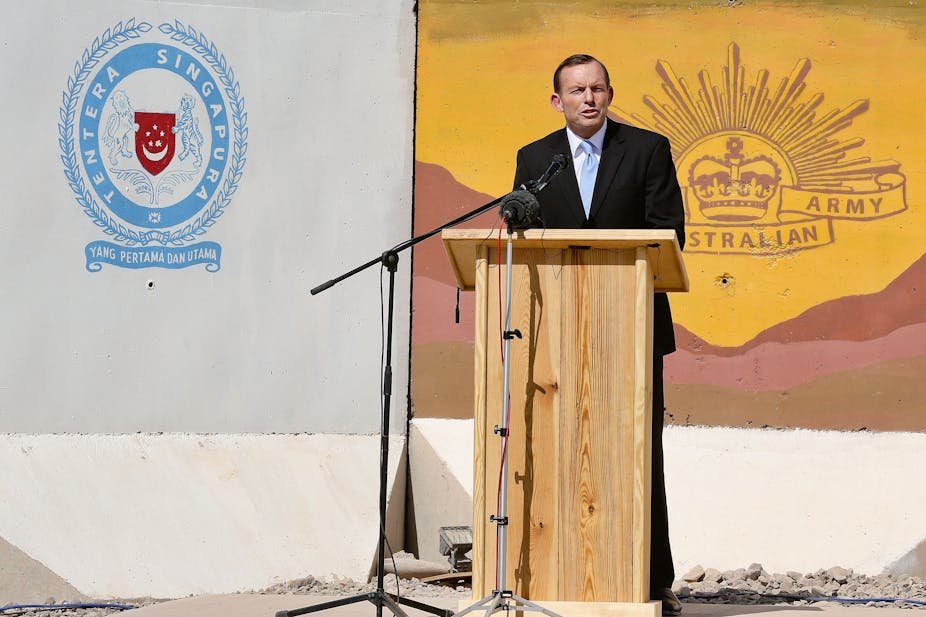Some aspects of foreign policy are as important to big business as the rest of the population in relation to national security. Australians generally want to avoid war, so substantial capacity for preventive diplomacy is essential. The work of the Department of Foreign Affairs and Trade (DFAT) is our first line of defence.
And yet, DFAT receives only about 3% of national security spending. Both recent Labor and Coalition governments have deprived the department of adequate resources to ensure fully effective international representation. Australia has fewer overseas posts than any other member of the G20 nations.
Therefore, there is a stronger case for increasing support for diplomacy rather than reducing it.
Defence spending is a complex case for policy analysts. For a start, the current year’s defence budget of A$25.4 billion is 6.5% of the Commonwealth’s expenditure. It comprises 75% of our total national security spending, the rest being spent on aid, federal police and the intelligence agencies.
Though still increasing, the current defence expenditure of 1.6% of GDP is a smaller proportion of GDP than in most recent years. This is one reason why defence advocates are arguing that military spending should be increased to the arbitrary target of 2% of GDP.
There are many questions about appropriate levels of defence spending:
- Are there any serious potential international threats in the short or long term?
- If so, what strategies are required for protection?
- If there are threats to Australia, would they also apply to allies? If so, how closely should we co-operate?
- If appraisal of future potential threats suggests that they tend to be over-estimated, what other activities should Australia’s defence force be preparing for?
Arguably, there is little possibility of serious threats in at least the short or medium term, but it is quite possible that Australia might be called on again to restore and maintain order in another country within our region. It is almost certain that Australia will be requested to contribute to United Nations peacekeeping and peace-building missions.
For these missions, though, demand is increasing for police and civilians with a range of skills in governance and economic and social development. Demand for military personnel is declining.
In this situation, there is a strong case for questioning whether orders for three squadrons of Joint Strike Fighters (JSF) and 12 submarines are justified. The JSF is “the most expensive weapons system ever built”. The US Government Accounting Office recently estimated the “flyaway” price at US$154 million per jet.
The price continues to rise as orders by the various US and foreign forces continue to be cut. The JSF has been:
…plagued by a risky development strategy, shoddy management, laissez-faire oversight, countless design flaws, and skyrocketing costs.
The rationale for purchasing these planes must be re-evaluated. The previous government has already reduced the planned acquisition from 100 to 72 and said that it would consider more in the future.
Arguably, such weapons are cost-ineffective when they are increasingly being replaced by drones. They may also not be suitable for Australia’s needs: for example, their range may be too limited. The Abbott government should re-examine the purchase.

Similarly, why does Australia need 12 new submarines? Some commentators have argued that six would be quite adequate, and the Government, which is looking for savings, should reconsider this too.
The withdrawal of most troops from Afghanistan will release most of the A$885 million-a-year cost of the current deployment, directly enabling a significant cut in the defence allocation.
Most voters are far more concerned with employment and living standards, health services and education than with defence. The Medicare card is of greater importance to the security of most Australians than increased military spending.
To enable a fiscal policy more attuned to improving the common good and more accurately reflecting strategic realities, Australian military expenditure should be cut, as is happening in the US and Europe. This would also have the benefit of reducing provocation to other countries in the Asia-Pacific region.

